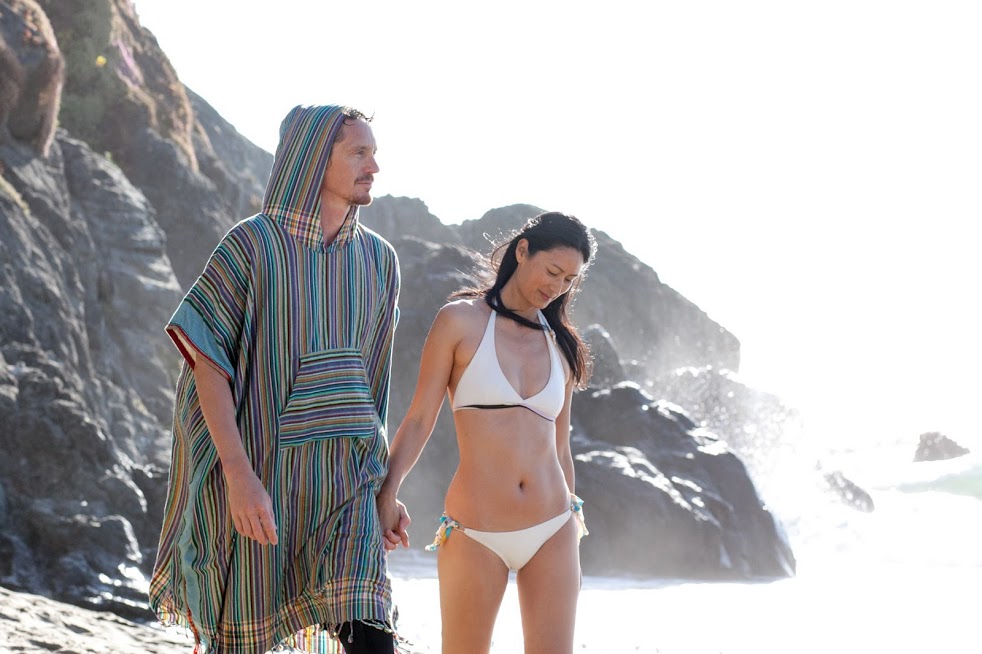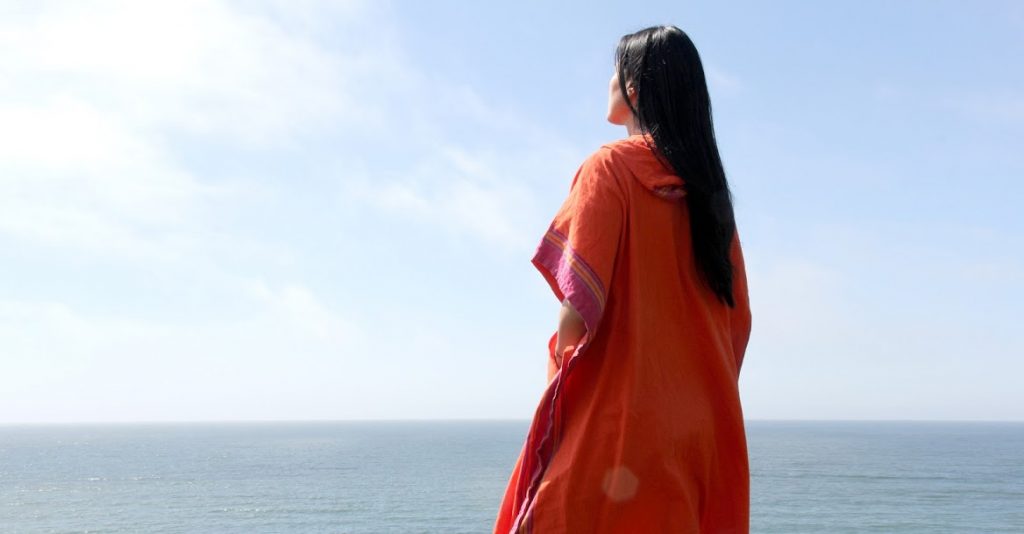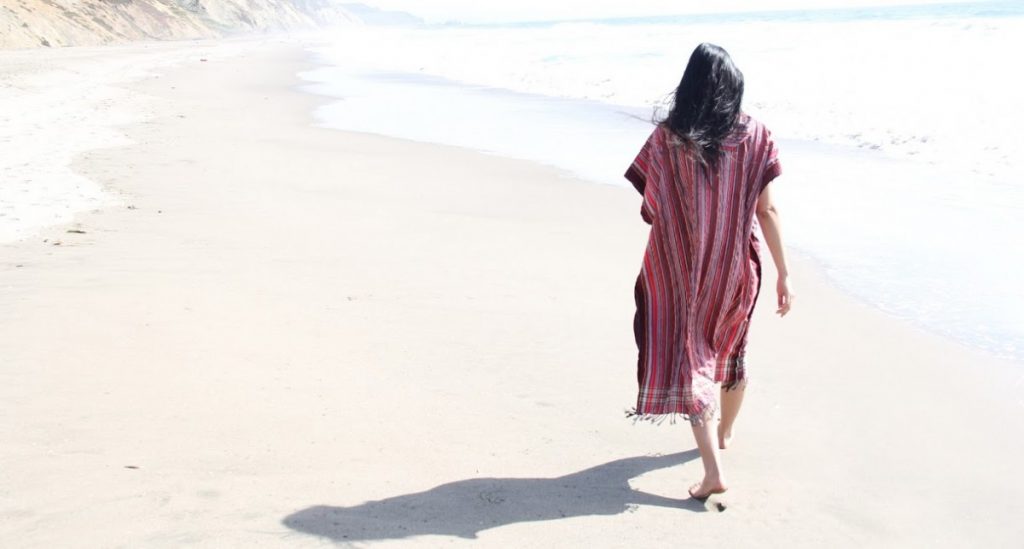What is Marlin Ray and what do you do?
Marlin Ray is a surf inspired brand that produces fashion and outdoor accessories. I am one of the co-founders of Marlin Ray, along side my husband, Josh Berry. It’s just the two of us!

What product of yours are you most excited about?
Our fair trade, carbon neutral surf poncho will always be our hero product. It’s why the brand was created. When I met my husband, I watched him change in and out of his wet suit with a raggedy old towel precariously wrapped around his waist, with his entire upper body exposed to the chilly northern California coastal air. I looked online for a changing poncho and all I found was cheap, ugly polyester ponchos or very expensive, one-off, hand sewn ponchos. I’ve been working for a fair trade factory in Kenya for almost 10 years and had the entire supply chain accessible for a changing poncho that fit my design aesthetic, price point and values. So I had to do it!
You have a supply chain transparency policy – can you talk about that?
Because we have a very small supply chain with small batch productions, we are able to be completely transparent with where we get all of our materials and trims. If and when we grow, we will continue our commitment to transparency, disclosing the source of all of materials and trims – as far as we can. You can read the details of our supply chain on our website.

What does sustainability mean to you as a business owner?
Sustainability means doing everything in my power to do business in the most ethical way possible. As a small producer, it’s much easier to make more sustainable choices. But as the size of the producer grows, it becomes much harder to make or transition to more sustainable materials and means of production. The bigger the company, it becomes more about a choice of trade offs and hyper focused initiatives, i.e. slowly transition to all organic cotton, but can’t phase out polyester. The advantage of being small is of course the ability to go deeper. And the advantage of being big is one commitment can make a big impact on the ground level.
As a business owner engaged in direct communication with consumers, I also feel the responsibility to bring more awareness about the dangers of our consumption and support of unethical producers. Engaged and concerned consumers can find resources and brands to decrease their carbon impact, like our guide to sustainable buying.
You’ve recently become plastic free – how did you do it?
We actually launched being almost plastic free. There are some things that we just can’t avoid, i.e. polyester thread for strength (but we’re close to finding a source) Also, for international shipping, you have to protect the garments from moisture. In this case, we have lined our boxes with plastic salvaged from the delivery of our bolts of fabric. Most brands have to individually wrap each garment because they get delivered to many distributors. Right now, there is not a good compostable bag option for this purpose. Recycled plastic is the only option. Some “bio plastics” claim to be compostable but they just breakdown to fine plastic dust!

Do you have any business role models?
Mara Hoffman and Stella McCartney are my top two.
Are there any additional shout outs you’d like to make?
Would definitely like to shout out to Wildlife Works factory.

Thank you Joyce Hu for coming on the Climate, Sustainability, Technology Blog!
Graham Majorhart is the founder of Carby Box, the first way to become carbon neutral in 1 click through Amazon.com.
